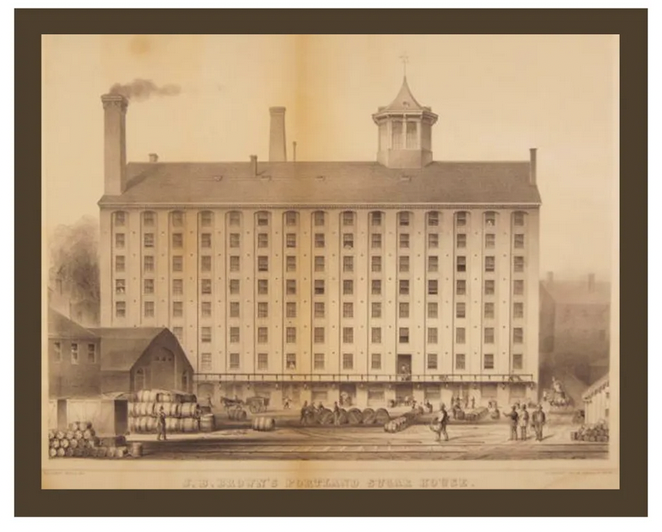Hosted by First Parish Unitarian Universalist
Sunday, May 29, 2022, at 10 a.m.
First Parish Unitarian Universalist
425 Congress St.
Portland, Maine
Seth Goldstein, instructor at Maine College of Art and educational director of Atlantic Black Box, will speak Sunday, May 29, 2022, at 10 a.m. at First Parish Unitarian Universalist, 425 Congress St.
His two-part talk will cover “Portland’s Complicity in African Enslavement,” growing out of his work with Atlantic Black Box, a nonprofit that examines the roles played by Maine and New England white families in the Atlantic slave economy.
“This is important history that is seldom taught in schools,” explained Rev. Elaine Peresluha, interim minister at First Parish. “The Faith In Action Committee has sought to learn and do better in terms of understanding and fighting systemic racism in our communities, and the slave economy is a part of our history as one of the oldest places of worship in Maine.”
All are welcome to hear Goldstein tell this story. Masks are required and available. Livestream the service at https://firstparishportland.org/
Goldstein notes that “73 of the 89 ships that departed Portland Harbor in 1787 were bound for the West Indies.” The ships carried Maine salt cod, farm produce and lumber to the sugar plantations worked by enslaved Africans under harsh conditions in the Caribbean, returning with molasses used to make rum and refined sugar in factories on the Portland waterfront. This West Indies trade employed not only sailors and shipbuilders but also coopers, who made barrels and casks, sail and rope makers and sugar factory workers.
Profits from this trade with slaveholders in the West Indies made fortunes for men like J.B. Brown, whose Portland Sugar House refinery was largest building along the Portland waterfront in the 19th century. Brown, his descendants, and fellow wealthy businessmen invested those profits in real estate, commercial and large residential properties still standing today on Congress Street and on the Western Prom.
Before the Civil War, even as a small number of Maine people joined the Abolitionists opposed to slavery, a host of local industries, thousands of working-class jobs, and a few large and lasting family fortunes in Portland depended on maritime commerce with the economic institution of slavery.
The original First Parish church in what is now Portland dates from 1674. In 1740 the second wooden meetinghouse, known as Old Jerusalem, was erected at the present location, 425 Congress St. The present granite structure opened its doors in 1826.
Contact: Rev. Elaine Peresluha, Interim Pastor, 207-773-5747
Angus Ferguson, 207-749-6618


Hello Atlantic Black Box I keep asking research people to look into the “Negro Islands” of Maine, close off shore, fast having their names changed to more respectable ones (you have to look at older maps. there are at least 6, possibly even twice that, and might have been where back people could tay or live while working on shore.
we need to know about them.
Beedy Parker, Camden ME (ours is called Curtis Island now)